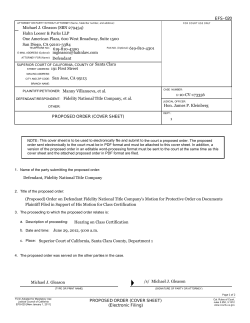
Internet Social Media Warning.
INTERNET, WEB SITE, SOCIAL MEDIA and EMAIL WARNING ATTORNEY-CLIENT CONFIDENTIAL COMMUNICATION If you belong to a public social networking account such as Facebook, Youtube, Twitter, Google Plus, Linkedin, Instagram, Pinterest..., PLEASE KEEP IN MIND THAT WHATEVER YOU POST MAY NOT BE PRIVATE AND MAY BE SUBJECT TO DISCOVERY BY THE DEFENDANT IN YOUR CASE. Internet and social media security and discretion is important to you regardless of whether you are pursuing a legal remedy. Please think and take caution with whatever you write or post. Your past and future posts, comments, pictures, videos, links, and more (hereinafter "postings") can all fall into the hands of the other defendant, his or her insurance company, and attorneys (hereinafter "defendant") for the purpose of unfairly attacking the validity of your claim. Furthermore, it is now standard practice for defendants to obtain information from social media sites. Generally the information is obtained without your knowledge or permission. If you have a social media site you should immediately verify that all your settings are on PRIVATE (the highest setting possible) and nothing is public. Even with the highest privacy settings you should write or post items with the assumption that it is open to the public and all information will eventually be seen by the other party in your case and even the judge and jury during trial. Warning- DO NOT delete or otherwise destroy any prior postings already existing on your site. California law prohibits a client in anticipation of litigation or in litigation to destroy evidence. The purpose of this warning is to share our concerns with your regarding all online postings from this point forward. We urge you to do the following: 1. Apply the highest privacy settings. 2. Be very selective about who you "friend" or otherwise connect with. Do not allow anyone to become a "friend" unless you are absolutely sure you know that person. Although improper and maybe even illegal, the defendant may try to "friend" you to gain access to your social media information. Be careful. 3. Refrain from using social media sites as much as possible while your case is pending. 4. Do not post anything about your case, do not answer questions about the facts or how you are feeling. 1 5. Do not post anything about meetings with your lawyers or staff members. This can result in a challenge to the attorney client privilege. 6. A picture is worth a thousand words so be very discrete about any photos or videos that you post. In our experience an injured client may "pose" for a picture that depicts participating in an activity that they are not actually doing. For example, standing next to some friends posing for a group soccer picture doesn't necessarily mean you are out playing soccer on the field. It may be very difficult to explain to a judge or jury that the photo was "posed" and that the client was not actually participating in the activity. Photographs showing physical activity inconsistent with your claims can be very damaging to your case. What seems perfectly harmless may be used against you. 7. Think about what you post: We have found that clients have made a post that do not actually reflect what they are doing, but rather what they believe sounds good. This "posed" posting can be very damaging to your claim. Do not post anything about your social life that involves drinking or other activities that the defendant, its insurance company or their attorneys may try to use to paint you in an unfavorable light to a jury. If you are making an injury claim a posting stating you are participating in a physical activity that is inconsistent with your claim can be result in irreparable harm to your effort to pursue a legal remedy for your injuries. 8. Do not send any e-mails regarding your case to anyone except your attorneys. There is no "unsend' button. It is very important that you do not send emails to friends or family about your condition or activities. E-mails often contain emotional content that you may find difficult to explain or may be inconsistent with your recollection if you are deposed later in the case. Additionally, the defense may attempt to subpoena the e-mails from your friends or family members. If it is absolutely necessary for you to communicate with a friend or family member keep the communications to what is essential and generally try to communicate verbally. The people you communicate with could be subpoenaed to testify about your communications. 9. Do not forward any e-mails from our office to anyone else. Forwarding our emails or sharing our communications of any kind can result in waiver of the attorney client privilege. 10. Do not enter insurance websites; participate in blogs, chat-rooms, or message boards. 2 We have seen an increase in electronic surveillance by the insurance companies, investigators, and defense attorneys for purposes of embarrassing and humiliating claimants, and for the purpose of claiming that your injury was exaggerated or even caused by anything other than the incident related to your claim. Insurance companies have successfully used such information; even those considered innocent, harmless joking between private "Friends," to convince a judge and juries that plaintiffs have been dishonest. You should assume that the defendant, its insurance company, and its attorneys look for social media entries that might paint an unflattering picture of you. Be aware that the defendants, its insurance company and attorneys may be entitled to request all information contained within your home computers and laptop hard drives regarding the issues we discussed above. The defendants, its insurance company and attorneys may also be entitled to subpoena information directly from service providers such as your social media and internet providers. Internet and social media security consultants recommend that you review the contents of your social network sites and that you review your "friends" or "connections" and keep only those that you know and trust. Always be aware of what you say or post, including photographs, in any format on your computer or internet. SOCIAL NETWORK INFORMATION Facebook: Do you have an account? Name or URL associated with the account? Youtube: Do you have an account? Name or URL associated with the account? Twitter: Do you have an account? Name or URL associated with the account? 3 LinkedIn: Do you have an account? Name or URL associated with the account? Google Plus: Do you have an account? Name or URL associated with the account? Instagram: Do you have an account? Name or URL associated with the account? Pinterest: Do you have an account? Name or URL associated with the account? Other Social Network Site(s): Name of the website? Name or URL associated with the account? 4
© Copyright 2025
















